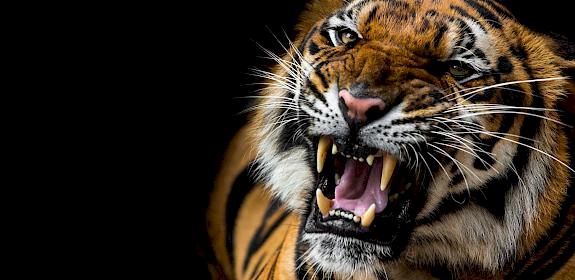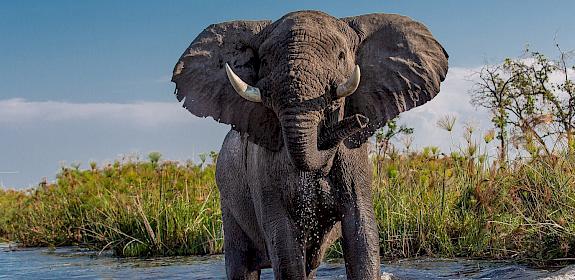Tigers and Lions on the loose in Ohio: an inevitable tragedy that should have been avoided
In Zanesville Ohio, USA, on 19 October 2011 some 56 exotic and native animals kept as pets by a private individual were intentionally released by their owner to roam the neighbouring areas.

They included 18 Tigers, Lions, bears, wolves and monkeys. Most of the animals were shot and killed by the authorities, eight were captured. Their owner had taken his own life after setting the animals free.
The animals were kept in poor and unsafe conditions and authorities had not been able to deal with the situation as the state did not have appropriate laws to prevent it.
In 2007, TRAFFIC drew attention to the keeping of pet Tigers without adequate checks and controls in the US with the launch of its report “Paper Tigers”.
TRAFFIC recommended urgent action by the appropriate US state and federal authorities, and working with WWF, has advocated for change for the past four years. However, the situation has not significantly improved.
“Four years ago, following the publication of Paper Tigers, we alerted US officials to the dangers posed through unregulated ownership of Tigers. The authorities explained that a lack of resources meant they could not implement the report’s recommendations at the national level. We hope they are reviewing that decision now,” said Crawford Allan, Regional Director, TRAFFIC North America.
The events in Ohio demonstrate the US has not been able to address adequately the lack of proper control over the keeping of Tigers as pets.
Ohio is one of ten US states that allow keeping of dangerous exotic animals like Tigers and there is a poor patchwork of control that allows private individuals to horde large numbers of big cats with little oversight by authorities.
Aside from the danger to humans and animals posed by private ownership of some endangered species, the practice may also contribute to illegal trade.
“Due to the lack of controls and enforcement resources to oversee them, the authorities would probably never know if the bones and skins of the many thousands of tigers in private hands in the US could also be entering into illegal trade,” said Allan.
That trade would fuel the global demand for Tiger parts used as medicine, fashion items and luxury tonics and further imperil the endangered wild Tiger.




